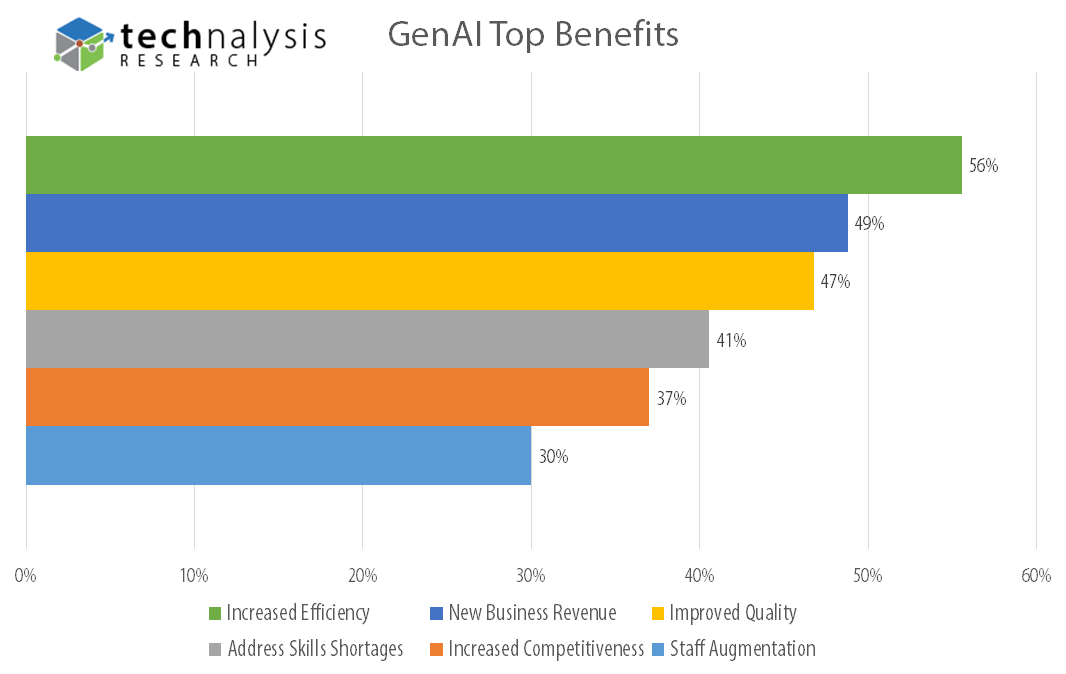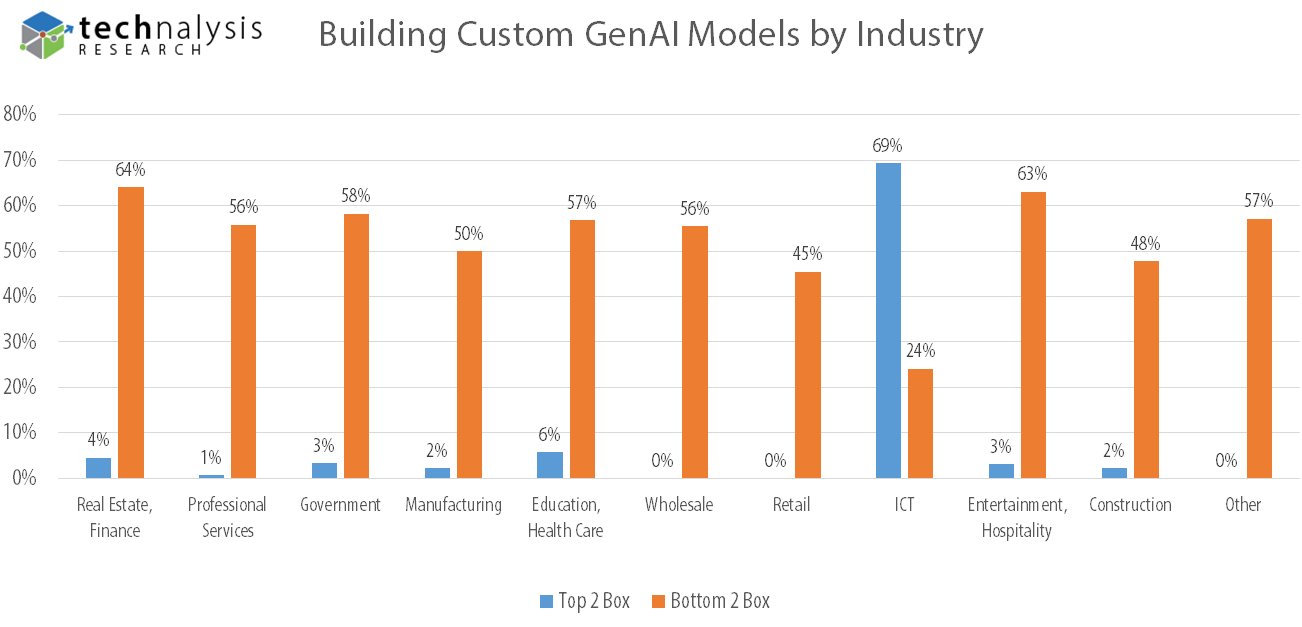Everyone is talking about the potential of generative AI to transform businesses, yet few have evaluated what companies are actually doing with the technology. This gap is now beginning to be addressed, partly due to an in-depth study conducted by TECHnalysis Research. This study delves into how US-based businesses are utilizing GenAI, covering topics such as the types of applications, vendor partners, implementations, benefits, concerns, and more.
The report, titled "A New Beginning: Generative AI in the Enterprise," is based on a survey of 1,000 US-based IT decision-makers engaged in their company's GenAI efforts across ten industry verticals and two business sizes. As the title implies, and the study results affirm, GenAI is fostering entirely new expectations about software applications' functionality, employee work processes, corporate strategy development and adaptation, among others.
The report also reveals numerous surprising facts about how businesses are presently deploying the technology. Moreover, it identified several gaps in knowledge about, and sophistication of deployment of GenAI, especially across different industries.
At a high level, the results indicated that an unexpected 88% of US companies participating in the survey are already employing Generative AI tools, although merely 7% have a formal policy about the technology. Intriguingly, among the group of current non-users, approximately 10% have policies that explicitly prohibit its use.
The larger group that is utilizing GenAI is enthusiastic about the opportunities it presents, with the key benefits illustrated in Figure 1. Over half of the respondents (56%) cited increased efficiency, and another 49% noted the potential to enable new business models and revenue streams as principal benefits of using the technology.
Even those deploying GenAI have concerns about it, with 55% highlighting potential security issues and protection of their corporate data. A similar number mentioned inaccuracies in the output data that foundation models can generate, and a nearly equal number (53%) voiced concerns about copyright infringement.
Unsurprisingly, those not using GenAI had similar apprehensions, with 70% identifying copyright issues as a problem, and 64% citing IP leakage as reasons for their reluctance. Moreover, 52% of this group stated they lacked the requisite skill sets within their organizations to leverage GenAI - a datapoint that underscores the significant educational gap many businesses face with this advanced new technology.
Interestingly, even among this group of skeptics, only 7% declared they had no interest in ever deploying the technology, leaving 93% open to considering it at some future point.
One of the most significant points of variation among survey respondents was the types of GenAI-enabled applications they were implementing, particularly across different industry verticals. At a top level, productivity and content generation-related applications, such as word processors, were most commonly used. However, in certain industries, applications like software coding or CRM (Customer Relationship Management) tools were the preferred choice.
When respondents were asked to rank the value of similar (though not identical) GenAI-powered product categories, there were often disparities between what companies valued and what they were currently using. This suggests that many companies have ideas about the types of GenAI-related applications they would like to run, but have yet to find solutions that meet their specific needs. This is one of many data points from the study that highlights the fact we are still in the early stages of GenAI adoption and there are ample opportunities for vendors to create new or enhanced solutions to fulfill customer needs.
One of the most dramatic examples of variation among industries was regarding the potential of a company building their own GenAI model. There's been a great deal of conversation about companies' desire to leverage their own data to customize GenAI models, a fact also borne out by the study. Some have even speculated about a high level of interest in creating custom models. However, the study results clarified that most businesses currently show no interest in this more advanced application, with one notable exception.
As Figure 2 illustrates, it was only the tech-focused ICT (Information, Communications, and Technology) sector that expressed significant interest in this area. In all other industries, only a small single-digit percentage of companies said they were very or somewhat likely to build their own custom GenAI models. However, in the ICT sector, this figure dramatically increased to 69%.
The results highlight that only technically advanced companies understand the significance and opportunity that a custom GenAI model might provide. They also reveal a vast educational gap about more sophisticated GenAI deployments that needs to be addressed.
The fact that GenAI has already gone mainstream opens up a multitude of exciting opportunities for vendors participating in this burgeoning market. However, as these and other findings from the study demonstrate, substantial education, targeted offerings, and more will be necessary to ensure GenAI becomes a consistently useful and powerful offering for businesses of all types.
You can download the summary highlights of the Generative AI in the Enterprise study for free here.
Bob O'Donnell is the founder and chief analyst of TECHnalysis Research, LLC a technology consulting firm that provides strategic consulting and market research services to the technology industry and professional financial community. You can follow him on Twitter @bobodtech


